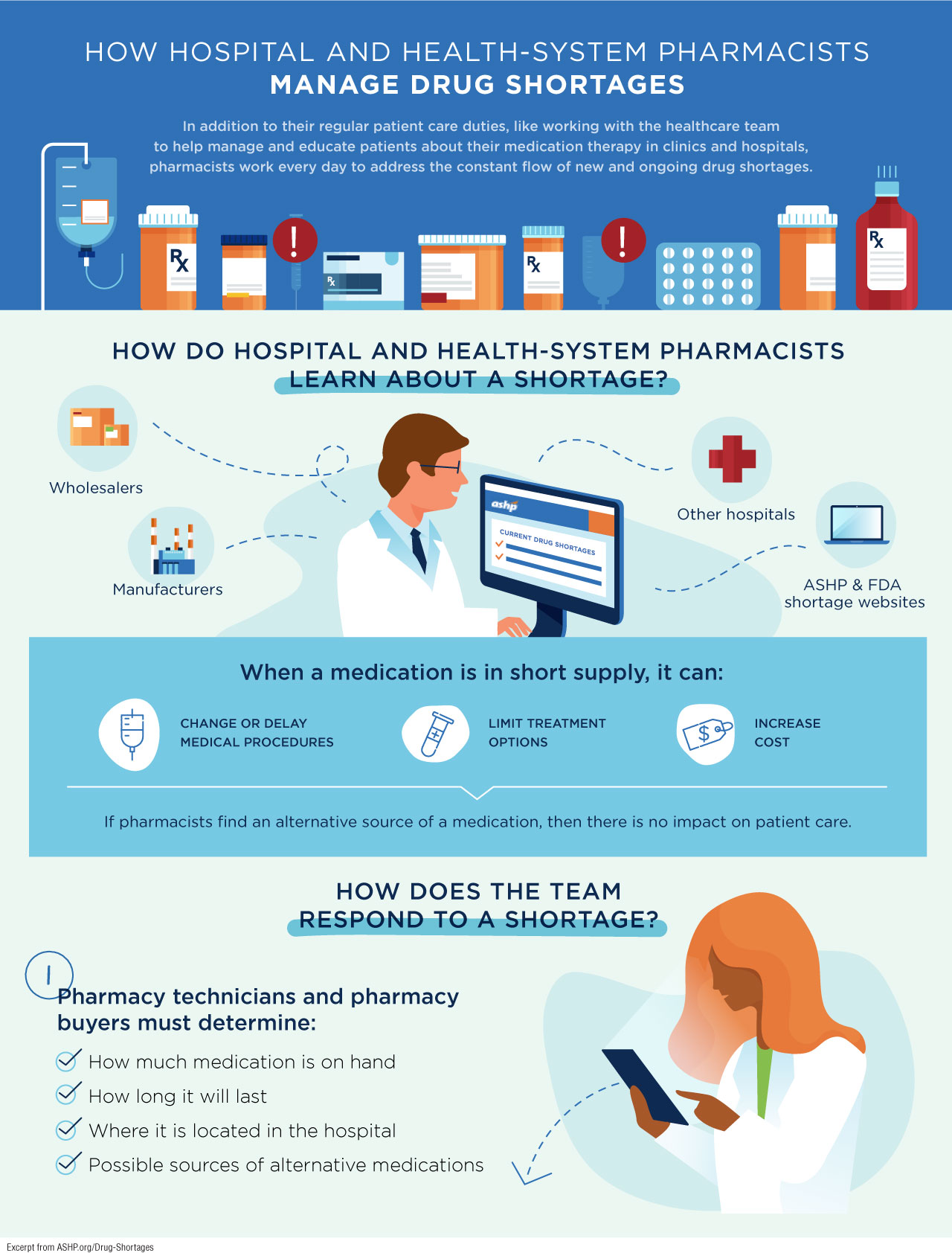Morgan Carson-Marino, PharmD, MS
On January 4, 2023, APhA hosted an open forum as part of the Pulse on Practice and Policy Open Forum Series to discuss the drug shortages that pharmacies are facing nationwide. The shortage and accessibility of various medications continues to affect patients and health care systems, which are struggling to find alternative therapies and mitigate the impact of these drug shortages.
The scarcity of essential medications, in particular, has sparked questions about contributing factors. For example, there have been concerns voiced about the supply chain and its intermediaries, the nature of manufacturing, and the role of FDA and the government.
During the open forum, experts, including Valerie Jensen, RPh, FDA’s associate director of the drug shortages staff, answered some of the top questions about drug shortages and the work being done to mitigate them.

What causes drug shortages?
Drug shortages can be caused by a variety of factors, including production delays, manufacturing issues, raw material shortages, and unexpected increases in demand.
How can health systems and compounding pharmacies prepare for and mitigate drug shortages?
Health systems can prepare for drug shortages by maintaining an up-to-date list of drugs that are in short supply and developing contingency plans for how to manage the shortages. This may include identifying alternative treatment options, conserving supplies of the affected drug, and coordinating with other health systems to share limited supplies.
Compounding pharmacies can help address and alleviate drug shortages by preparing customized medications, for example, with alternative formulations and doses. FDA is responsible for regulating compounding pharmacies, such as their standards for quality and safety, but Medicare, Medicaid, and private insurance companies are responsible for determining which medications may be covered.
Compounded medications are covered if deemed medically necessary and if no alternative treatment is available.
503B outsourcing facilities, or compounding pharmacies registered with FDA, can step in during shortages to manufacture medications that are in short supply or use alternative ingredients. Moreover, these facilities can collaborate with hospitals and other pharmacies to identify shortages and prioritize manufacturing efforts accordingly.
What are the best resources for predicting and proactively managing drug shortages?
The FDA’s Drug Shortage website is a helpful resource for staying up to date on current and potential drug shortages. Many hospitals and health systems have established protocols for managing drug shortages and may have additional resources available to help predict and proactively manage shortages.
What role does overseas manufacturing play in drug shortages?
Many drugs used in the United States are manufactured overseas, and supply chain disruptions or manufacturing issues in these countries can contribute to drug shortages.
Additionally, the increasing global demand for drugs and other medical products has put pressure on manufacturing capacity, which can also lead to shortages. FDA is working to ensure the drug supply chain is robust and is taking measures to protect smaller sites. Overseas manufacturing and importation plays a role in the current drug shortage, and FDA is considering different options to ensure adequate drug supply, including moving manufacturing back to the United States.
How can pharmacists inform prescribers about shortages and improve communication?
Pharmacists can regularly check FDA’s Drug Shortage website and other resources and share this information with prescribers. It is also important for pharmacists to stay in close communication with their colleagues and other health care professionals to share updates about shortages and discuss potential alternative treatment options. Many health systems have established protocols for managing drug shortages and may have systems in place for communicating with prescribers about shortages and alternative treatments.
Taken together, FDA determines which drugs to put on the shortage list based on reports from manufacturers, wholesalers, and other stakeholders and this is a process that takes time to be reported and listed. In the meantime, shortage management practices can be implemented in health systems and these contingency plan strategies can be shared among pharmacy teams and other health care professionals.
As the demand for certain medication continues, communication with both patients and providers about alternatives is important and pharmacists can deliver updates as needed.
As pharmacists, it is important to stay informed about any changes to DEA regulations and their effect on prescription validity. Overall, changes in the shortage crisis are complex and may be caused by a variety of factors and the best resources for staying updated include the FDA’s shortage list and establishing relationships with suppliers. ■
